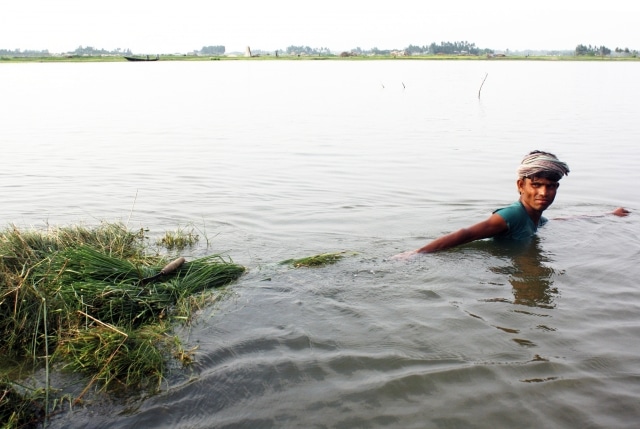Climate change will lead to terrorism and increased immigration into the UK as millions are displaced by rising seas, a senior military figure warned as the Lima climate talks entered their final hours.
Displaced and marginalized climate refugees will be forced to abandon their homes as vast areas of countries, such as Bangladesh, are lost due to sea level rise over the next 35 years, warned Major General Munir Muniruzzaman, a former military advisor to the president of Bangladesh.
This will create a vast “breeding ground for recruitment for extremists and radicals,” General Muniruzzaman told The Telegraph. And since the already-overpopulated country will not be able to accommodate its refugees, many will flee to Britain where there is already a substantial Bangladeshi population.
According to a Bangladeshi government strategy paper on climate change more than 20 million people could be displaced due to global warming impacts.
“The settlement of these environmental refugees will pose a serious problem for the densely populated Bangladesh and migration must be considered as a valid option for the country,” the strategy paper says.
Mass Migration
However, not all people will be able to migrate to nearby countries such as India, which borders Bangladesh on three sides. This is because these borders are fenced off, meaning refugees will reach out wherever they have friends and family. “No country is out of their reach,” General Muniruzzaman said.
“The capability of the state to absorb this very large number of climate-displaced people is not there at all. So we are looking at the prospect of…outward trans-border migration,” said General Muniruzzaman, head of the Global Military Advisory Council on Climate Change.
This is not the first warning that climate change will lead to mass migration and radicalisation. The General’s statements come at the same time as U.S. Secretary of State John Kerry warned that climate change now ranks alongside terrorism, nuclear proliferation and epidemics as a threat to global security.
Photo: Shahriar Islam, AusAID via Flickr
Subscribe to our newsletter
Stay up to date with DeSmog news and alerts







